July is Disability Pride Month, but, like with queer pride, disability history and experiences are not something taught in schools or represented in the media. In fact, studies have shown that while about a quarter of the US population has a disability, less than three percent of characters on TV are disabled. So, if you want to find disability representation or learn to be a better ally to disabled people, it requires some extra effort to find those perspectives.
To help, I’ve put together a list of a dozen books (in alphabetical order by last name, this is not a ranking) that will help you learn about the disabled experience and its many variations – or help you feel seen if you are disabled. This list will make you laugh out loud, bring you to tears, make you question things you believed to be true, and even make you want to blast Demi Lovato.
1. The Pretty One: On Life, Pop Culture, Disability, and Other Reasons to Fall in Love with Me by Keah Brown (2019)
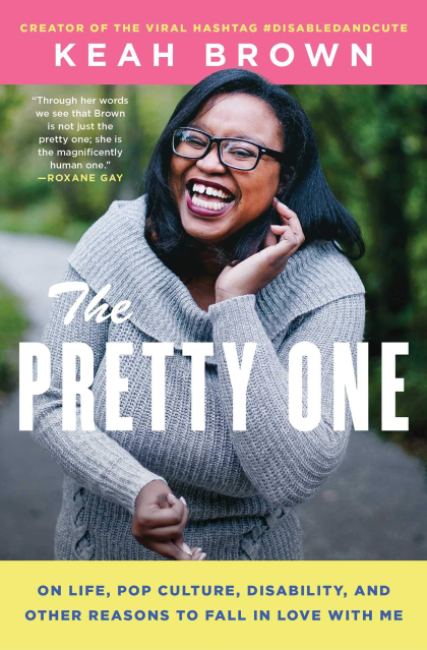
Keah Brown’s personal essays of her experiences living in a Black disabled body in a white disabled world are absolutely charming. It balances emotionally heavy moments with anecdotes about teenage crushes on Usher and a review of Demi Lovato’s best albums. Brown went viral on social media for her #DisabledAndCute, celebrating self-love and representation. Similarly, the essays largely focus on how Brown experienced music, film, TV, fashion, and makeup throughout her life – from the empowering moments of seeing Black women represented on TV to the frustration of trying to learn to use makeup with a physical disability. This book felt like chatting with an old friend. The book was published in 2019, but Brown came out as bisexual in 2020 and wrote an article for Autostraddle recognizing the people who helped her realize she is bisexual.
2. More Than Organs by Kay Ulanday Barrett (2020)
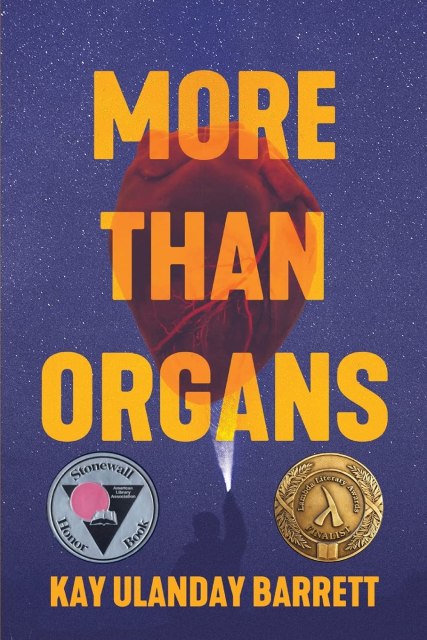
Kay Ulanday Barrett is a self-described “queer brown Filipinx disabled transgender boi.” This poetry collection is described as “A love letter to Brown, Queer, and Trans futures.” It is appropriately heavy, but it also finds moments of joy and a sense of community. Barrett has said that the title “More than Organs” is inspired by the experiences of being a sick, non-binary person who often interacts with medical settings where bodies are gendered, labeled, and held up to certain medical standards that may not fit. It is defiant and intersectional, heavy but hopeful.
3. Exile and Pride: Disability, Queerness, and Liberation by Eli Clare (1999)
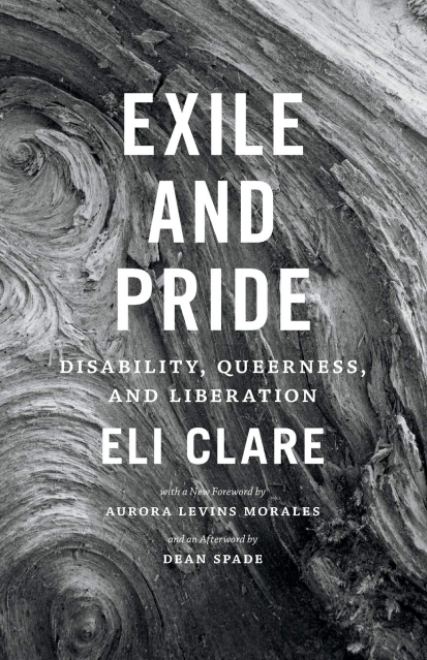
Eli Clare, a disabled transgender author and advocate with cerebral palsy, was a part of a critical wave of queer and BIPOC disabled people who redefined the fight for disability rights to center on justice and intersectionality. His book was groundbreaking, first published in 1999, and is essential to queer disability history, justice, and organizing. It explores gender, the notion of home, environmental justice, capitalism, gender, sexuality, and accessibility while calling for change and accountability within social justice movements.
4. Lord of the Butterflies by Andrea Gibson (2019)
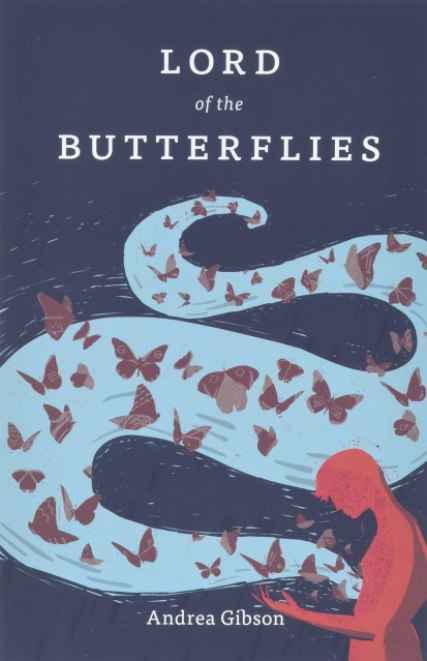
Nonbinary poet Andrea Gibson writes beautiful heartfelt prose about the experience of being queer, dealing with gender dysphoria, living with Lyme disease, and coping with mental illness. This collection includes “Gender in the Key of Lyme Disease” and “Tincture,” which confront the pain, grief, and loss of chronic illness and see Gibson trying to come to terms with a diagnosis that took the life of someone they idolized. One of my favorite lines from the collection shows the intersection between physical and mental illness: “Good god, there isn’t a healthy body in the world that is stronger than a sick person’s spirit. Thirty times last month, I thought, I can’t do this another day. Thirty times last month, I did it another day. I lived with the hurt burrowing into my bloodstream and still wanted more time.”
5. We Are Never Meeting In Real Life by Samantha Irby (2017)
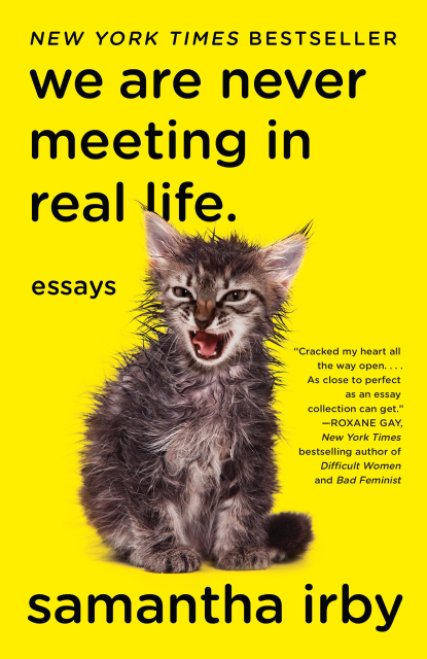
Samantha Irby is a Black queer woman who writes humorous personal essays about her life, including her experiences with Chron’s disease, arthritis, and mental illness. All of her books are great, but I recommend this one because it has been framed as “putting a funny face on Chron’s,” so that seems like a good place to start for a better understanding of what it means to live with inflammatory bowel disease. Irby is so funny and relatable and honest that I read all of her books back to back, often laughing out loud and occasionally crying.
6. Care Work: Dreaming Disability Justice by Leah Lakshmi Piepzna-Samarasinha (2018)
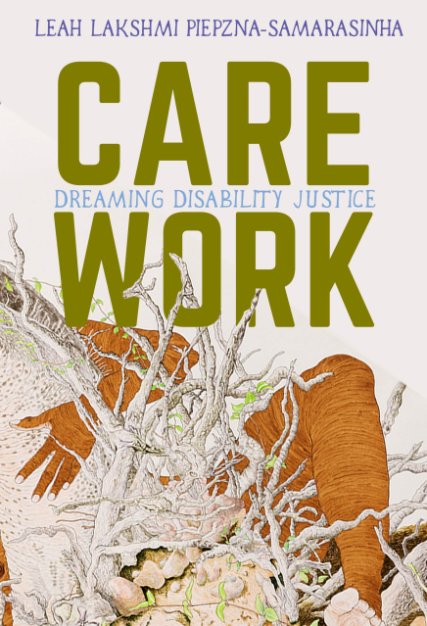
Leah Lakshmi Piepzna-Samarasinha is another writer and activist whose work and influence are essential to understanding the history and progress of the disability justice movement. They are a self-defined “mixed-blood, middle-aged, nonbinary femme disabled and autistic writer, disability and transformative justice cultural and movement worker,” and this collection of essays feels like reading about a vision for a better, more inclusive, and accessible world. I was inspired and surprised to learn how Lakshmi has helped organize collective care and mutual aid in queer, disabled, BIPOC communities. As a queer disabled person, it felt free to hear Lakshmi’s vision and principles for a world where organizing and activism are truly accessible and where disabled people have access to the support they need regardless of their financial resources. I recommend it for allies, especially because it will give you a better understanding of what it really looks like to show up for disabled people.
7. I’m Special: And Other Lies We Tell Ourselves by Ryan OConnell (2015)
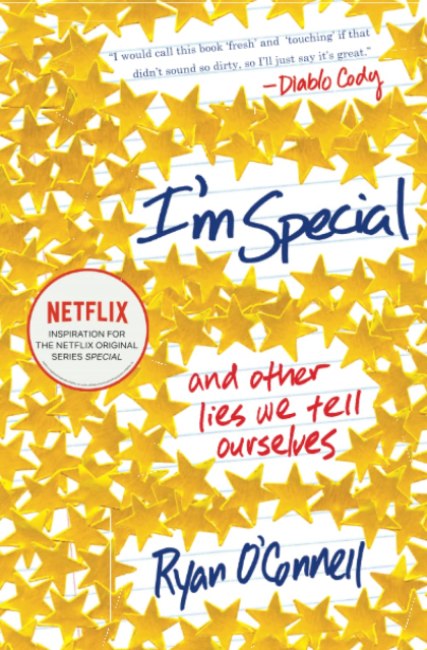
In recent years, Ryan OConnell, a gay man with cerebral palsy and complications from getting hit by a car, has become a powerful advocate for queer disability representation. He started as a culture writer, and this collection of essays inspired the Netflix show of the same name. This book, and O’Connell’s work generally, is sex-positive and shares the joy, shame, and unique awkwardness that can come with having sex in a queer disabled body. O’Connell is also starring in Peacock’s new Queer As Folk, where he further increases the representation of disabled queer sexuality. This book is a great and hilarious place to get acquainted with his work.
8. Sitting Pretty: The View from My Ordinary Resilient Disabled Body by Rebekah Taussig (2020)
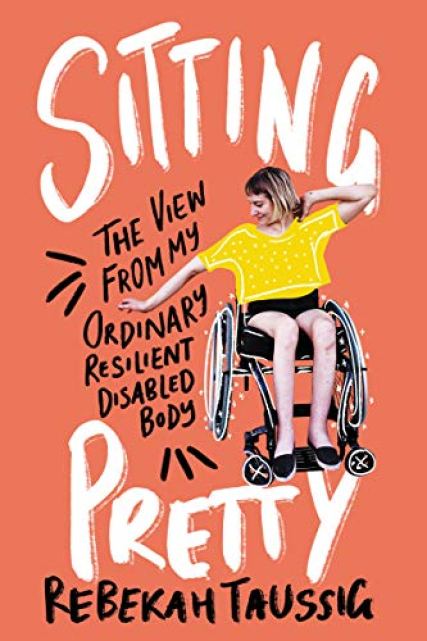
Rebekah Taussig is a disabled educator, and because of that experience, she does a great job explaining and breaking down ableist stereotypes, harmful tropes, and microaggressions. She has been disabled most of her life, so her book highlights how her experiences differ from those of someone who develops a disability later. Her essays include frustrating experiences of people insisting on helping her with her wheelchair only to make things harder for her and able-bodied family members that don’t understand why she feels marginalized. She attempts to teach high school students about ableism even though they fight her and say some terrible things. She tries to buy a house, gets married and divorced, and gets pregnant despite being told she might not be able to have children, and she does all of this while explaining how her disability impacts her.
9. The Body is Not an Apology: The Power of Radical Self Love by Sonya Renee Taylor (2021)
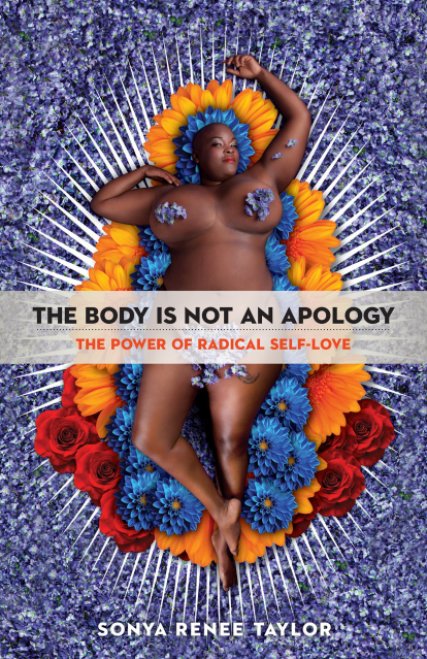
Sonya Renee Taylor is not strictly a disability writer but an advocate for self-love. Her work breaks the stigmas and judgments of having a body different from the ideal. This is a must-read for anyone struggling with shame around their body because, as Taylor explains, “living in a female body, a Black body, an aging body, a fat body, a body with mental illness is to awaken daily to a planet that expects a certain set of apologies to already live on our tongues. There is a level of ‘not enough” or ‘too much’ sewn into these strands of difference.” It also lays essential groundwork for breaking down ableism because ableism is based on a view of bodies as a means of productivity, function, and the ability to fit into a mold.
10. A Sick Life: TLC ‘n Me: Stories from On and Off the Stage by Tionne “T-Boz” Watkins (2017)
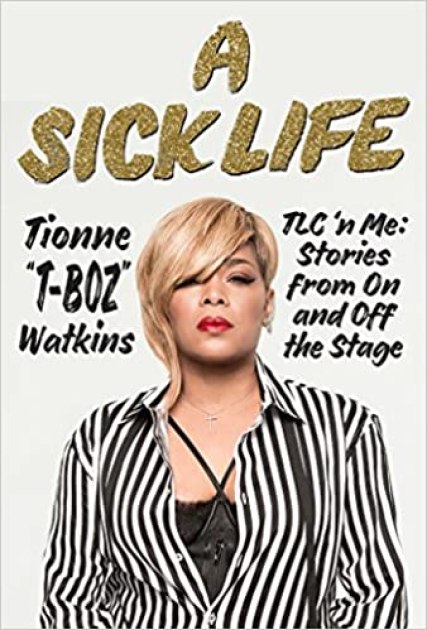
I was obsessed with TLC as a child, so I was excited when I came across this book via some recommendations algorithm. TLC, for those unfamiliar, was an R&B / Pop group of all Black women who broke many records and accomplished many firsts in the music industry; they remain one of the best-selling “girl groups” of all time. This book is a first-hand account from T-Boz about her experience of being on top of the world surrounded by signs of success, fame, and influence while being very ill with sickle cell disease. T-Boz was told from an early age that she wouldn’t live very long, and she spent a lot of time in and out of the hospital, including during tours with TLC. The book shows how she struggled to balance her career and the demands of chasing her dreams with a chronic illness and offers a behind-the-scenes peek at TLC.
11. The Collected Schizophrenias: Essays by Esmé Weijun Wang (2019)
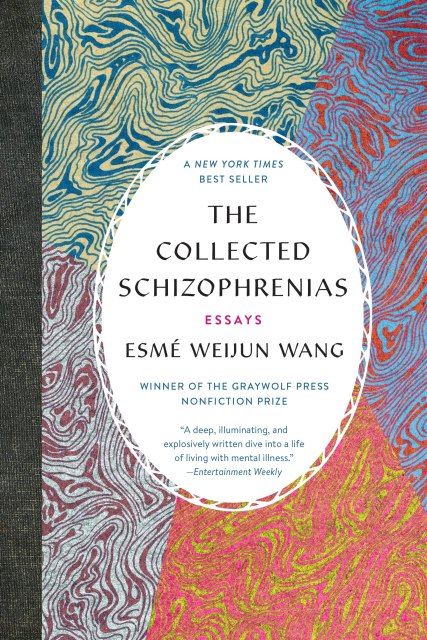
Esme Weijn Wang’s collection of essays about schizophrenia is important for its first-hand, non-clinical account. I did find the essays to feel a bit academic at times because it goes into detail about diagnostic criteria and the Diagnostic Manual definitions of schizophrenia, Lyme, PTSD, and other diagnoses that Wang deals with on the path to getting a correct diagnosis. But overall, I learned a lot about schizophrenia, and it helped break down some of the ableist stigma and myths I didn’t realize I was still holding.
12. Disability Visibility: First-Person Stories from the Twenty-First Century by Alice Wong (2020)
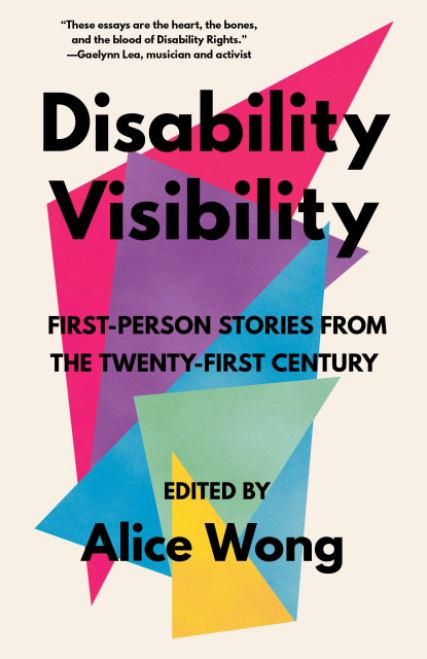
Alice Wong is an absolute icon and force for disability justice and representation, and no list on the topic would be complete without her work. Disability Visibility is an anthology of first-person disabled writing, representing a wide range of experiences. Disability is, of course, not a monolith, so this anthology is essential reading to better understand the wide range of experiences and needs within the disability community. It includes the perspectives of BIPOC, queer, and trans-disabled people, including Jen Deerinwater, Keah Brown, and Leah Lakshmi Piepzna-Samarasinha.



I read like five of those books and they are all wonderful. Thanks for this list, now I can go read some more!!
I love this list, Katie! Care Work in particular has a special place in my heart. Happy Disability Pride Month!
wonderful recommendations, thank you! i particularly loved the taussig, and just read the wang this weekend and it read like a house on fire. SO good.
i also loved elsa sjunneson’s being seen, a memoir / manifesto about being deafblind – blew my goddamn socks off.
I have read a few of these, but I’m excited to dig into more!
i love your username 😊
Awesome list, I’m excited to dig into those I haven’t read! I especially appreciate the wide range of types of disability represented.
Really appreciate this list and the variety of perspectives, thank you so much!
Thanks so much for this, & I’m definitely going to check out books from this list!
I’m non binary, Autistic, & living with Crohn’s Disease, autoimmune arthritis, chronic depression, & anxiety. We are real people, living real lives that are complex & meaningful, & our voices deserve to be heard!
Wishing strength & solidarity to all folks living with chronic illness/disability this month & every month…
I would add ‘Golem Girl’ to this list. It’s a wonderful memoir by a Riva Lehrer, a queer disabled artist who paints portraits of other people in her community.
For sure on Golem Girl. Fantastic read.
love this list and love disability pride month! any plans for a companion list of fictional criplit recommendations? i recently read lillie lainoff’s ‘all for one’ about a POTSy musketeer and really enjoyed it
except it’s actually “one for all” the other half of the motto
Would also love a fiction list! I’ve put a couple of these on library hold but I definitely prefer reading fiction in general. :) I randomly checked out Lycanthropy and Other Chronic Illnesses recently, and it was awesome.